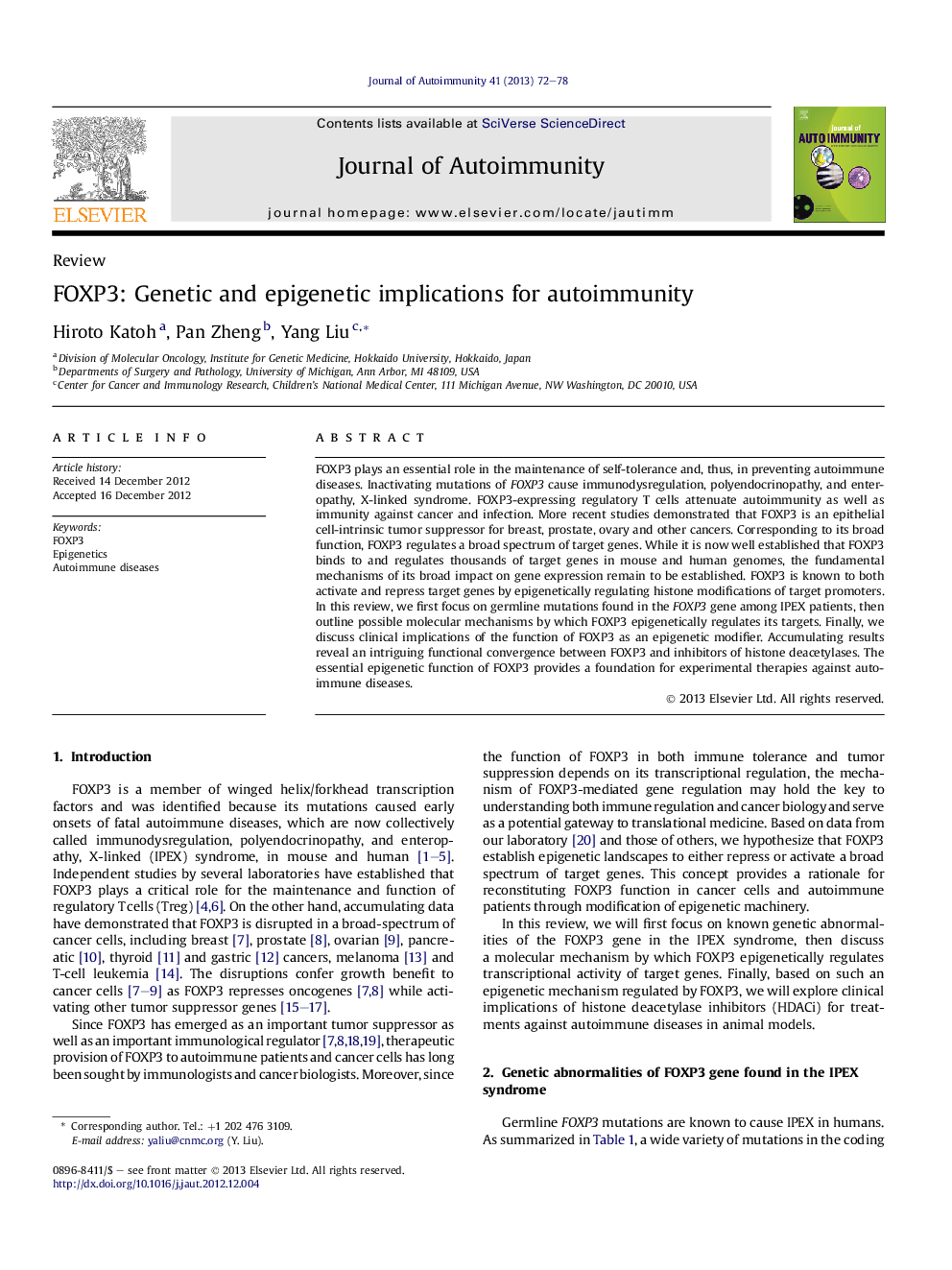| Article ID | Journal | Published Year | Pages | File Type |
|---|---|---|---|---|
| 3367900 | Journal of Autoimmunity | 2013 | 7 Pages |
FOXP3 plays an essential role in the maintenance of self-tolerance and, thus, in preventing autoimmune diseases. Inactivating mutations of FOXP3 cause immunodysregulation, polyendocrinopathy, and enteropathy, X-linked syndrome. FOXP3-expressing regulatory T cells attenuate autoimmunity as well as immunity against cancer and infection. More recent studies demonstrated that FOXP3 is an epithelial cell-intrinsic tumor suppressor for breast, prostate, ovary and other cancers. Corresponding to its broad function, FOXP3 regulates a broad spectrum of target genes. While it is now well established that FOXP3 binds to and regulates thousands of target genes in mouse and human genomes, the fundamental mechanisms of its broad impact on gene expression remain to be established. FOXP3 is known to both activate and repress target genes by epigenetically regulating histone modifications of target promoters. In this review, we first focus on germline mutations found in the FOXP3 gene among IPEX patients, then outline possible molecular mechanisms by which FOXP3 epigenetically regulates its targets. Finally, we discuss clinical implications of the function of FOXP3 as an epigenetic modifier. Accumulating results reveal an intriguing functional convergence between FOXP3 and inhibitors of histone deacetylases. The essential epigenetic function of FOXP3 provides a foundation for experimental therapies against autoimmune diseases.
► Multiple FOXP3 mutant alleles have been identified in IPEX patients. ► Not all FOXP3 mutations abrogate regulatory T cell function. ► FOXP3 sets epigenetic landscape of its target genes. ► FOXP3 defects may be corrected through targeting epigenetic machineries.
